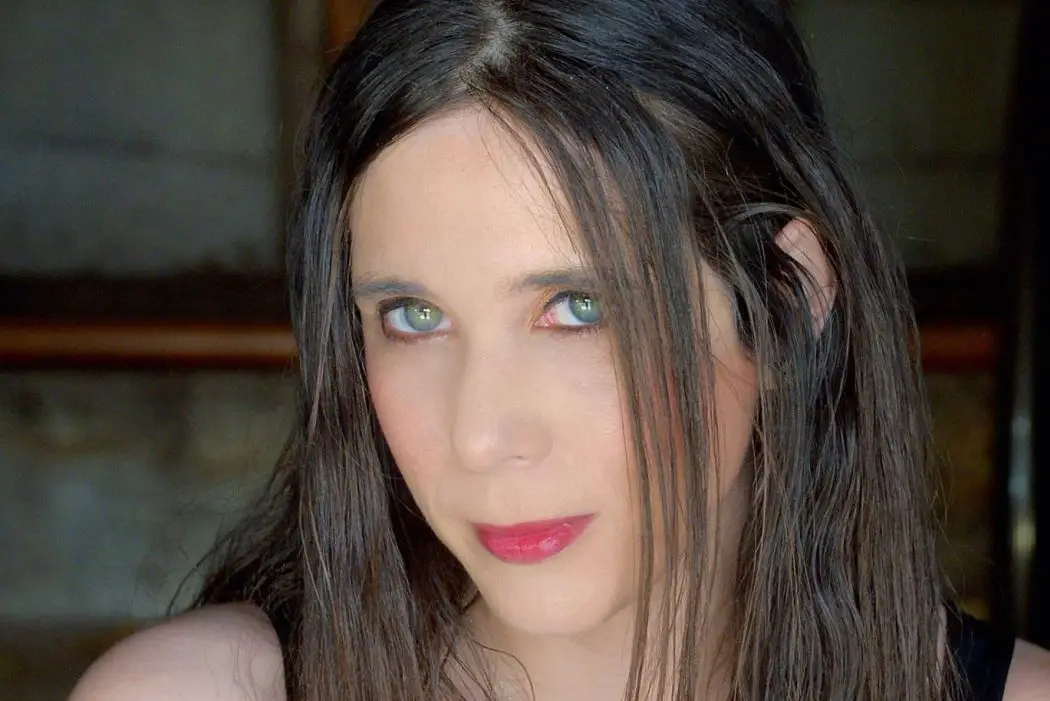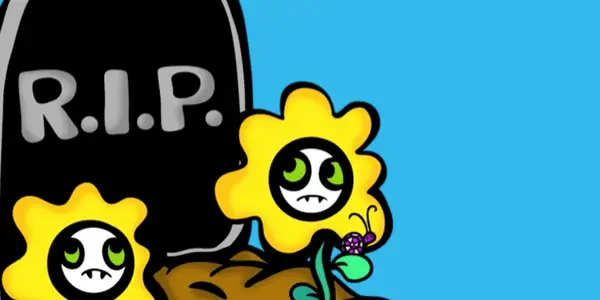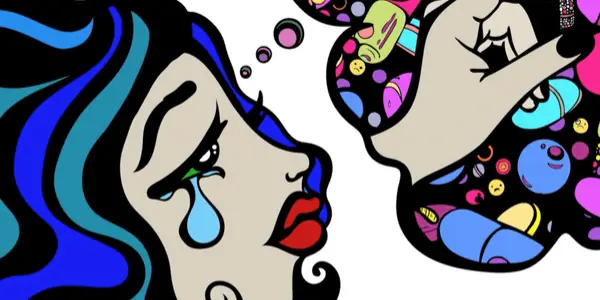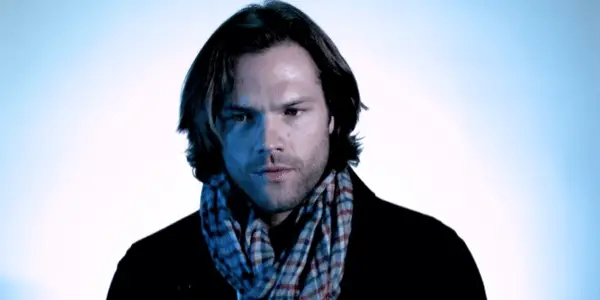Interview With Jacqui Blue, Director Of I CHOSE LIFE: STORIES OF SUICIDE & SURVIVAL

Former film student from Scotland turned writer and film reviewer.
‘It took a total of five years to complete this film’, says Jacqui Blue of her new documentary I Chose Life: Stories of Suicide & Survival. ‘I wanted to really talk about this issue and cover multiple aspects of it. I wanted to make a universal film, where even someone who never had a suicidal thought in their life could watch this film and have a better understanding or maybe even some empathy towards those who are in a mental battle fighting for their own life every day’.
Suicide is still, to many, a taboo subject. Unfortunately, there is still a dearth of films covering the topic itself. While dramas around suicide like 13 Reasons Why have proven to be big hits on Netflix, there are still startlingly few documentaries which really dive into the phenomenon of suicide, with only maybe The Bridge perhaps standing out. ‘As a mom of teenagers, I became very concerned about the fact that suicide is the second leading cause of death for people aged ten to thirty-five in the United States. No one is really talking about it, they just acknowledge that it’s a problem and that we need to talk about it, but they’re not really saying much and suicide rates are going up’.
This is what drew Blue to the project itself, and fuelled her determination to see it made. This wasn’t an easy thing to do; the topic of suicide isn’t exactly sexy, and Blue found it difficult to find anyone willing to invest. ‘No one wants to fund projects about suicide,’ she says. ‘I couldn’t get funding. I tried. I was met with a lot of coldness and rudeness by many in the mental health community when I reached out. It was very discouraging and truthfully, I almost gave up on this project many times because of it’.
Blue persevered with the project thanks to her determination and passion for it. She was helped along the way by friends and family who urged her to keep going. ‘My stepdad was the one who really encouraged me to go forward. I realized that I didn’t want to make it personal on any level but at the same time wanted to make it relatable because I understand this is a global issue that affects people from all walks of life. Regardless of where one was born, what language they speak, what colour their skin is, what political leanings they have or deity they worship – suicide affects many of us either directly or indirectly’.
Talking To Survivors
To this effect, I Chose Life utilises personal stories from those affected by suicide, and its one of the film’s strongest aspects; deep conversations with real people who have first-hand experience of suicide in some way or other. This was essential for Blue. ‘It became very important to me that we erase the stigma so people can talk without fear of being locked away in a mental institution or jail,’ she says. ‘I put out word on my social media. The founder of one group, SOLOS (Survival of Loved Ones to Suicide) was very happy to talk to me and share about what I was doing within her community’.

After that, things began to pick up. ‘An Emmy nominated hip hop artist reached out to me after hearing about the film and wanted to contribute. T.O.N.E-z has since become a good friend of mine. He helped put out word within his circle’. Suddenly Blue and her producers were contacted from people all over the world who wanted to share their stories. She realised then just how vital it was to listen to people, people who may not have been listened to all that much in their lives. ‘Not everyone needs you to give them a solution, some people just need to talk and express themselves. Some people would come up to me and sit down, tell me their very personal story and afterwards I’d ask them if they’d be willing to share that on film for my documentary’. Most of the time she was told no.
The reasons for these, she said, were always very similar: people didn’t want their friends, family, or work colleagues to know that they’d felt this way. ‘They feared the judgement and if they’d get fired or be looked at, treated, and talked to differently. There was real fear attached to people in their lives ever finding out they had had these thoughts or took these actions yet they also desperately wanted to talk about it’.
There were also some hard moments during interviews. ‘As a mom of five teenage boys, there were two stories in the documentary that had me crying hard tears every time I listened to them. I couldn’t get through editing without tears. That’s Frankie and Jack’s stories, told by their mothers. When I was on the phone with these women, Anastasia and Grace, I had myself muted while I recorded them and I was crying really hard as they told me these stories of their sons taking their lives. It affected me more than I thought it would going into making this film and further drove into me how important this film was. That’s when this became their film, not just mine’.
How to be Resourceful
The process of filming itself was also difficult. Without much money, Blue had to be very resourceful to see her ambitions realised. ‘I had a few friends with cameras who were able to help me shoot interviews. My co-producer Jessica [Fondo] and I did all the research ourselves. I watched films and documentaries about mental health, making myself aware of what was already out there on the topic’.

When it came to post-production Blue found herself in need of artwork. Something different to make her documentary stand out. ‘One of my good lifelong friends reached out to me and volunteered her artwork. I’ve known Lisa since 7th grade and she’s been there for me through some really important and tough times in life. She’s one of those friends that I’ve always been able to count on when life hands me a big bowl of lemons. She stepped outside her comfort zone and took her art to another level, creating some darker graphics than she’s used to’.
Some help also came in the form of Supernatural star Jared Padalecki, who appears in an interview in the documentary. ‘The same month I started pre-production on this documentary happened to also be the same month Jared started the Always Keep Fighting campaign’. Blue reached out to Padalecki to see if he would contribute. ‘He was only in town for a couple days,’ she says. ‘But he made time for us and was very humble, down to earth and open about discussing all of this stuff’.
Although the focus is largely on the real stories of everyday people, I Chose Life does touch upon the idea of celebrity suicide and the effect this could have on other people. It’s an important topic to cover, especially in an era which has seen the deaths of so many high profile stars. ‘I was twelve years old when the lead singer of my favorite band died and the official ruling was suicide. Nirvana was a band that was very therapeutic and important to me at that time in my life, one I could relate to and made me feel less alone in the world. When Kurt Cobain died it hit me very hard in a way that I wasn’t prepared to deal with at that age’.

Blue then found herself in a similar position many years later when she had to explain to her son that the lead singer of one of his favourite bands had taken his own life. ‘I woke up to the news that Chester Bennington had hanged himself. I felt my heart sink because Linkin Park was one of my son’s favorite bands. I called my kid into my room, sat him down, and told him the news. He looked shocked and completely froze in place before he started to cry and ask why. I didn’t have an answer to the why, I only had empathy because I knew what he was feeling’.
Suicide and the Healthcare System
It has given her a perspective on celebrities and their role in battling the stigma of suicide which she feels is very important. ‘I do think celebrities should be more open to discussing their own suicidal thoughts and ideation. It lets people know they’re not a freak for feeling that way. It’s not something people talk about and they need to. When celebrities are open about taking medication for their bipolar or schizophrenia it tells the average person dealing with their own mental health that it’s okay to take a pill to get through the day, and not be ashamed about it. Not talking about it does more harm’.
Perhaps one of the biggest shadows cast over I Chose Life is that of the American healthcare system. As one of the biggest countries in the world without a socialised healthcare system, many feel America is letting its citizens down and that changes must be made for the betterment of everyone. This is, of course, especially prevalent given the current pandemic sweeping the globe. ‘We’re behind the ball when it comes to taking care of our people,’ Blue says. ‘Even right now our leaders are talking about ending social distancing in the name of getting the economy stimulated again because capitalism cares more about profits than people. That’s what our leaders are showing us right now, in the face of a global pandemic’.

As frustrated as she is with the American healthcare system, Blue does have some ideas about what we should do. ‘What needs to happen is that we need to end the stigma attached to mental health. People need access to treatment and when they can’t get it because they’re poor and homeless, they get tossed out on the streets. I talk about veteran suicide in my film. I’m not pro-war at all but the fact is we have a lot of veterans in the United States who risk their lives and wellness for their country and many of them who survive become homeless when they return. The country doesn’t take care of them the way it should. It’s really disgraceful’.
I Chose Life
While she doesn’t believe I Chose Life will have an impact on America’s leaders, she does hope that it will have an impact on the everyday audience. ‘I hope that people who are suicidal will stop and think about how their suicide will affect their parents, siblings, and friends left behind. These are things a lot of people don’t think about when they have the tunnel vision of suicide ideation because they’re only thinking about their own pain and ending their suffering. I hope that people who lost someone to suicide will watch the film and have a better understanding of what their loved one was going through and that it wasn’t their fault’.
This touches on a big point Blue wishes to make with the film: that suicide isn’t something that can be solved, but that needs to be understood and accepted. Only then can we begin to deal with it. ‘A lot of people mistakenly think that they could have prevented suicide if only they knew or took an action and they live with that guilt – but you can’t blame yourself for the actions of someone else. I hope that people who are struggling mentally will watch this film and that it will spark something in them, whether it’s to seek help, seek someone to talk to, or seek out a new hobby as a coping mechanism. I also hope that people will pay attention to the warning signs and risk factors. Those things may help you recognize when someone else you care about or know is going through it and aren’t talking about it. Maybe you can reach out, take them out to eat, let them know that someone cares – because sometimes just caring can go a long way’.
I Chose Life: Stories of Suicide & Survival will be released worldwide on May 7th, via the website which you can access by clicking here.
Does content like this matter to you?
Become a Member and support film journalism. Unlock access to all of Film Inquiry`s great articles. Join a community of like-minded readers who are passionate about cinema - get access to our private members Network, give back to independent filmmakers, and more.













